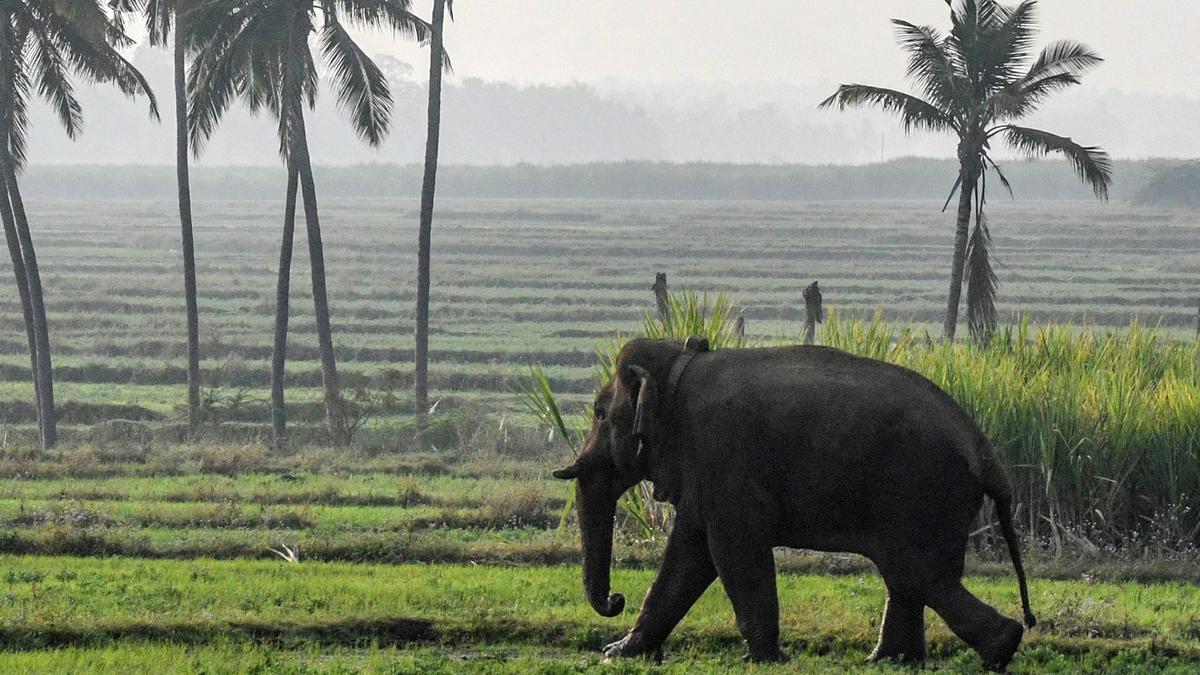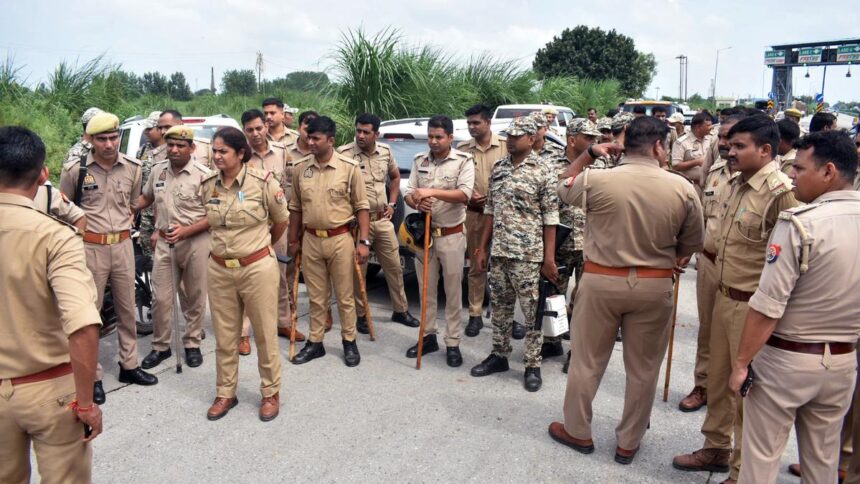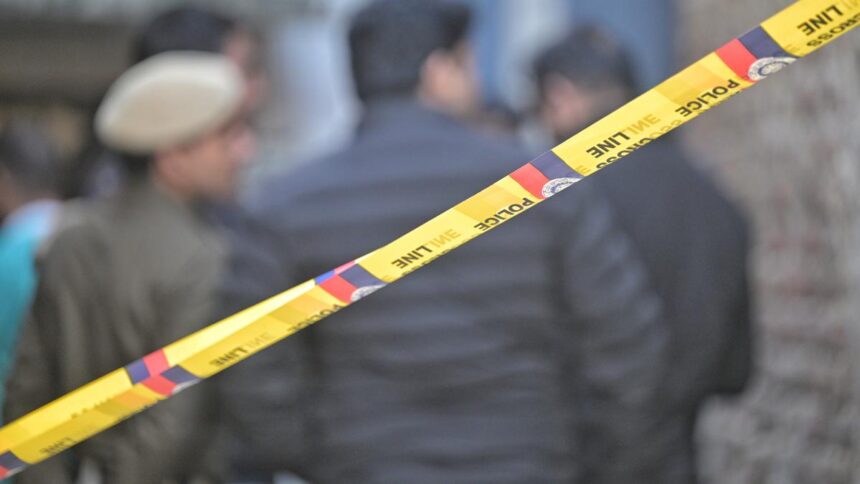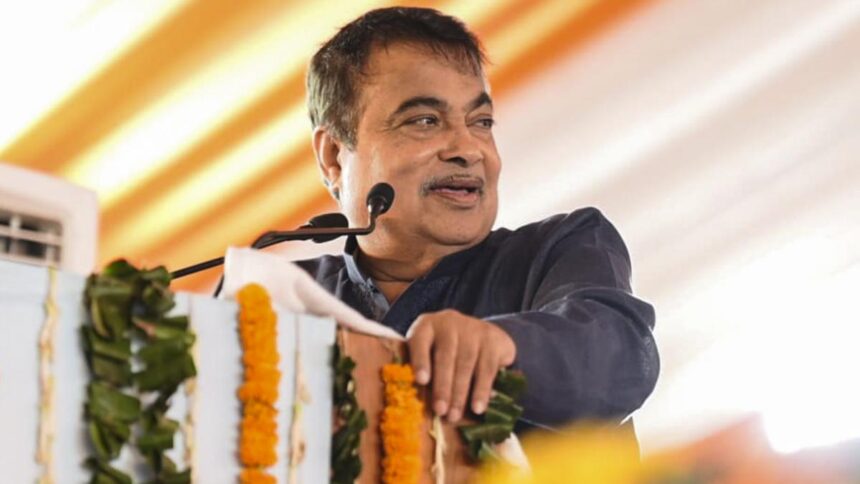
Representational image. File
| Photo Credit: M. Periasamy
Two judges of the Madras High Court have decided to conduct a personal inspection of the 10-kilometre long stretch, at Thondamuthur in Coimbatore district, where the Tamil Nadu government had proposed to erect a steel wire rope fencing to prevent Human-Elephant Conflicts (HEC).
Justices N. Sathish Kumar and D. Bharatha Chakravarthy would be visiting the stretch, and other places where elephant movement could be spotted in Mettupalayam region, along with amici curiae T. Mohan, Chevanan Mohan, Rahul Balaji and M. Santhanaraman on September 5 and 6, 2025.
Focus Tamil Nadu: The fight over elephant fencing in Coimbatore forests
| Video Credit:
Thamodharan B.
The judges have asked Special Government Pleader (forests) T. Seenivasan too to join them in the inspection besides making arrangements for it in coordination with the district forest officials. Activist S. Muralidharan had objected to the erection of the steel wire rope fencing near the forests.
However, defending the government’s decision to erect the fencing, the Principal Chief Conservator of Forests-cum-Chief Wildlife Warden (PCCF-cum-CWC) Rakesh Kumar Dogra told the court that that though it was proposed to put up the fence for a distance of 30 km, financial sanction was accorded only for 10 km.
Deaths and compensation
“Coimbatore forest division was spread over 693.48 sqkm and shared a boundary with habitations for a length of about 350 km where it was vulnerable to HEC. Elephants had strayed out 9,710 times in this division in the past three years and 147 deaths had occurred during 2011-2022,” the officer said.
He also stated that the government had to pay a compensation of ₹11.35 crore to the families of the dead. He added traditional methods of digging elephant proof trenches and erecting solar fences had proved to be ineffective with the pachyderms that indulge in crop raiding and house breaking in the area.
“Hence, it was decided that elephant proof steel wire rope fencing could be done on a pilot basis in Thondamuthur. Accordingly, Chief Minister M.K. Stalin made the announcement on November 6, 2024 and a Government Order sanctioning ₹5 crore was issued on February 4, 2025,” he said.
Amici curiae’s objection
On their part, the amici curiae filed a note before the Division Bench objecting to the proposal to erect the steel wire rope fencing since the area marked an abrupt shift from forest to private lands. They said, the terrain was slopy and there was no buffer zone for elephants to navigate.

“The steep slopes and the fence together will lock the area with no other solution for the elephants but to circumnavigate the hills or try to force themselves through the fence. In both cases, the risk of mortality will be increased,” the amici curiae said by relying upon certain studies undertaken in the area.
“As the fence covers 10 km, elephants coming into the private from the adjacent forests will be prevented from accessing the forests on the other side and it may lead to more conflict. Closing forests completely will solve problems locally but shift the conflict elsewhere,” they added.
The lawyers also said: “A scientific study must be undertaken to understand the impacts before fencing… The Forest Department is in the process of notifying elephant corridors across Tamil Nadu. Until the corridors in Coimbatore region are consolidated and notified, the fencing may be held off.”
After perusing the PCCF-cum-CWC’s counter affidavit as well as the note submitted by the amici curiae, the judges wrote: “We are of the view that personal inspection is required in the matter. Accordingly, we propose to visit Mettupalayam and other places where the proposed fencing is to be erected along with the learned Special Government Pleader and learned amici curiae.”
Published – August 19, 2025 02:44 pm IST























